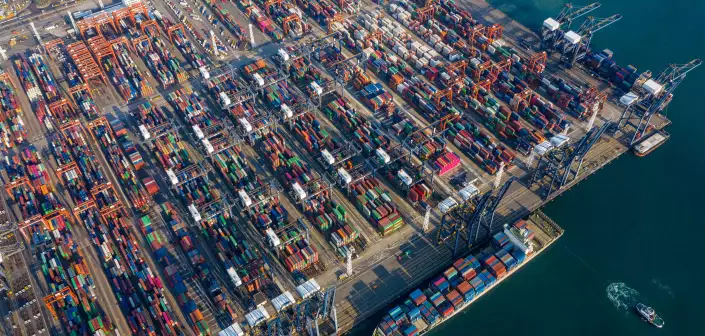- Geopolitical Uncertainties and High US Tariffs Are Driving a Significant Shift Away from China as the Primary Export Platform for North American Markets
- Reshoring to the US Is a Clear Trend, and Mexico, India, and Southeast Asia Are Rapidly Emerging as Future Export Manufacturing Powerhouses for US Manufacturers
- A New BCG Report Analyzes the Magnitude of Global Manufacturing Shifts
BOSTON—Five years of disruption marked by trade wars, the pandemic, geopolitical tensions, and severe supply bottlenecks have profoundly redrawn the map of where global companies manufacture and source goods. A new report released today by Boston Consulting Group (BCG), titled Harnessing the Tectonic Shifts in Global Manufacturing, underscores the magnitude of these shifts.
Based on a survey of North American manufacturing executives and an analysis of global trade patterns, the report reveals that more than 90% of manufacturing companies in the region have moved at least some of their production or supply chain in the past five years. Of those, half reported that they had shifted more than 20% of their manufacturing and supply chain spending. Further, owing to ongoing geopolitical uncertainties and high US tariffs, more than 90% of respondents said that they plan to make similar moves over the next five years.
Thanks to their deep labor pools and growing scale and capabilities across diverse industries, Mexico, India, Southeast Asia, Turkey, and Morocco are rapidly emerging as future export powerhouses. For example, from 2018 through 2022, US goods imports declined by 10% from China in inflation-adjusted terms, but they rose by 18% from Mexico, by 44% from India, and by 65% from the ten countries of the Association of Southeast Asian Nations (ASEAN).
“Changing geopolitics, the evolution of relative cost structures, more frequent and high-impact disruptions, and the push for decarbonization, among other factors, will lead to a massive restructuring of global supply chain networks over the next decade,” said Ravi Srivastava, global leader of BCG’s Operations practice and a coauthor of the report. “Companies need to fundamentally rethink their manufacturing and distribution networks, build capabilities in new geographies, leverage government incentives, and establish new relationships across the supplier ecosystem to enhance their competitive advantage and protect their business.”
What’s Driving the Manufacturing Migration
The primary driver of these global production shifts is the ongoing quest for low costs. But respondents to BCG’s survey also indicated a strong desire to shorten lead times, operate in more stable business environments, and gain flexibility to respond to disruption—even at the cost of several points of operating margin. Executives said they would sacrifice over 2% of gross margins, on average, to gain sufficient labor and shorter lead times. They also expressed a willingness to pay for more stability, greater ease of doing business, and stronger logistics infrastructure.
However, the outcome of these recent production shifts has been mixed. Only 55% of respondents reported that their production moves had met their objectives in improving unit costs, shortening lead times, or achieving sustainability goals.
How Manufacturers Can Respond to the Challenges
To achieve better results, the authors advise companies to adopt a “market-back” approach, starting with the end market and designing a comprehensive manufacturing and sourcing footprint strategy to serve it. The report outlines a five-step approach that comprises establishing a clear strategy, building end-to-end visibility, comparing landed costs, considering the tradeoffs and risks of various location options, and clarifying governance and the operating model.
A successful footprint transformation can improve companies’ resilience and sustainability and cut their global manufacturing and supply chain costs by 20% to 50%, according to the report.
“Manufacturers across industries can achieve substantial cost reductions, along with improved resilience and sustainability, by boldly transforming their global manufacturing and sourcing footprints. But realizing the full potential of such a transformation requires time and significant investment,” said Jon Van Wyck, North America leader of BCG’s Industrial Goods practice and a coauthor of the report. “Companies that move first and pursue a comprehensive footprint strategy will be in the best position to create sustainable competitive advantage.”
Download the publication here.
Media Contact:
Eric Gregoire
+1 617 850 3783
gregoire.eric@bcg.com
